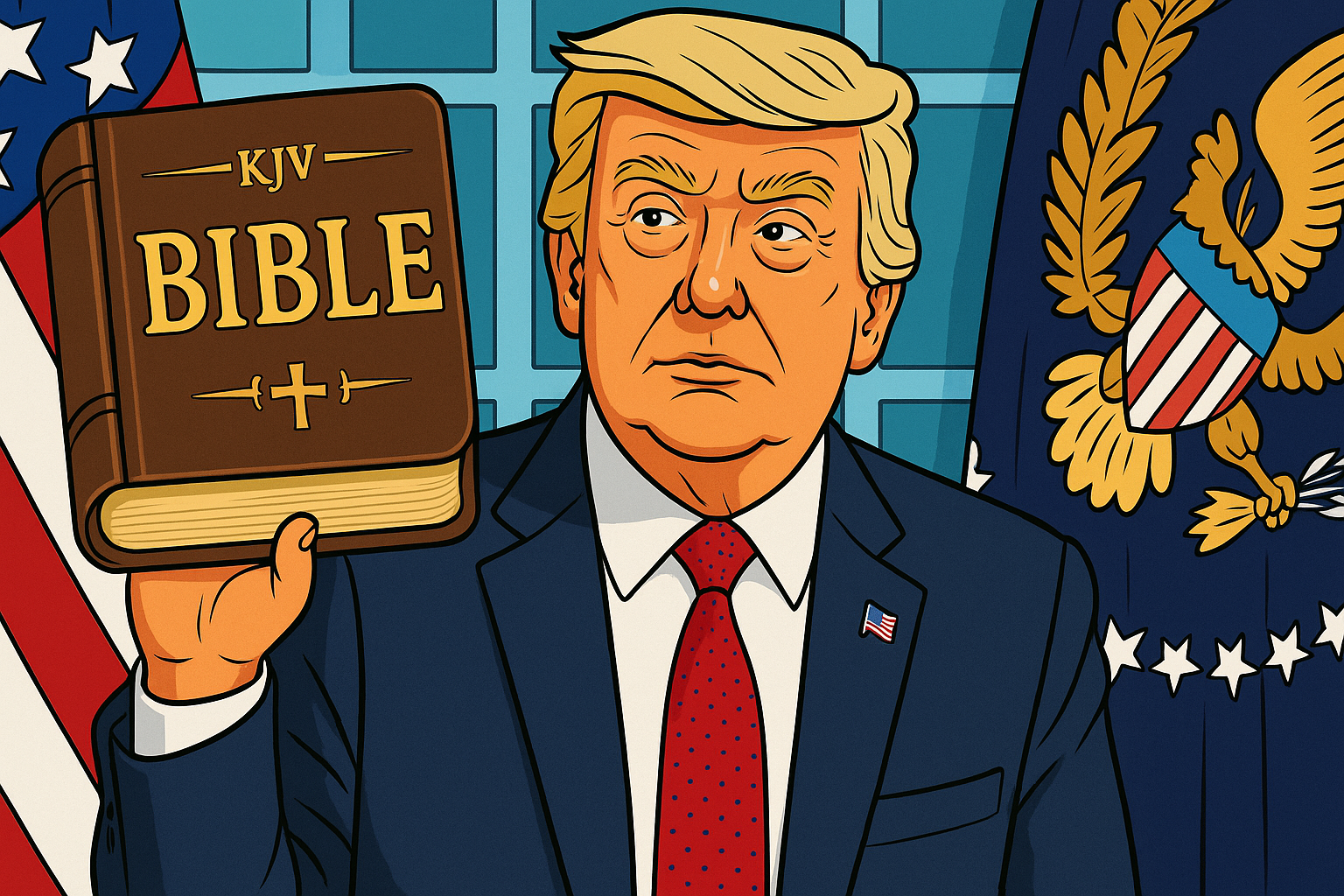Trump Emphasizes Role of Religion in Nation-Building During Museum of the Bible Speech
Former U.S. President Donald Trump delivered a high-profile speech at the Museum of the Bible in Washington, D.C., addressing the White House Religious Liberty Commission. Trump framed religion as a cornerstone of American identity and unveiled initiatives to protect religious freedom, school prayer, and national faith practices. His remarks quickly sparked debate across political, religious, and academic circles.
1. Religion as the Foundation of National Strength
Trump argued that “To have a great nation, you have to have religion.” He emphasized that faith is not just personal but national, linking America’s greatness to its religious foundations rooted in Judeo-Christian principles.
2. Protecting Prayer in Public Schools
Trump announced that the Department of Education will issue new guidance safeguarding the right to pray in public schools, calling current restrictions “grave threats to religious liberty.”
3. Launch of the “America Prays” Initiative
Trump introduced “America Prays”, a national initiative encouraging communities to hold prayers for the nation ahead of the 250th anniversary of the Declaration of Independence in 2026. The motto: “One Nation Under God.”
4. Criticism of Secular Policies
Trump criticized “radical gender ideology” in schools, referencing a case involving a fifth-grade student. He claimed that faith-based values are being sidelined, and criticized politicians like Senator Tim Kaine for undermining the Creator’s role in the nation’s founding principles.
"We will protect the Judeo-Christian principles of our founding and protect them with vigor."
— NEWSMAX (@NEWSMAX) September 8, 2025
President Donald Trump speaks at the Museum of the Bible. pic.twitter.com/ynFitN9Liv
5. National Identity and God
“We will never surrender our God-given rights. America has always been a nation that believes in the power of prayer.”
Trump highlighted religion as the defining feature of America’s character. Supporters welcomed the stance, while critics warned it risks blurring church-state boundaries.
6. Online Reaction and Media Coverage
A Reuters post quoting Trump’s line — “To have a great nation, you have to have religion” — gained major social media traction. Public reaction was divided between praise and criticism.
7. Historical Context of Trump’s Religious Advocacy
The speech aligns with Trump’s previous actions as president to strengthen religious freedom, especially in education. As the 250th anniversary approaches, Trump is framing religion as central to America’s identity and future.
'To have a great nation, you have to have religion. I believe that so strongly,' President Trump said at the Museum of the Bible in DC, adding he will soon issue guidance on the right to pray in public schools pic.twitter.com/SzpSyxVlkA
— Reuters (@Reuters) September 9, 2025
FAQs
Q1: What is the “America Prays” initiative?
A faith-based program inviting religious communities to pray for the U.S. ahead of its 250th Independence anniversary in 2026.
Q2: What change is coming to public schools?
The Department of Education will issue new guidance protecting prayer in public schools.
Q3: Why did Trump choose the Museum of the Bible?
The venue symbolizes the connection between American identity and faith traditions, reinforcing the event’s theme of Religious Liberty in Education.
Q4: How has the speech been received?
Reactions are mixed — supporters praise it as a defense of faith, while critics caution it threatens secular governance.
Conclusion
Trump’s Museum of the Bible speech highlights the ongoing debate about the role of religion in American nation-building. His initiatives — including school prayer protections and the America Prays program — aim to restore faith as a unifying force. Supporters view this as a return to foundational values, while critics warn of marginalizing secular perspectives.
Opinion
The speech raises a broader question: Can a modern democracy thrive while grounding its national identity in religion? Trump’s claim that great nations require faith resonates with collective spirituality, but the U.S. has always balanced religious freedom and secular governance. This tension will likely remain central in the lead-up to America’s semiquincentennial.


0 comments